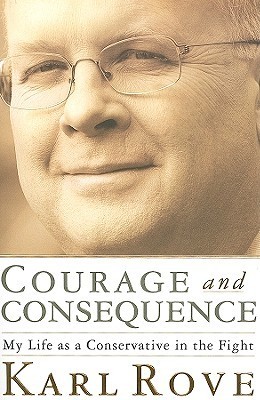What do you think?
Rate this book


From the moment he set foot on it, Karl Rove has rocked America’s political stage. He ran the national College Republicans at twenty-two, and turned a Texas dominated by Democrats into a bastion for Republicans. He launched George W. Bush to national renown by unseating a popular Democratic governor, and then orchestrated a GOP White House win. For engineering victory after unlikely victory, Rove became known as “the Architect.”
Because of his success, Rove has been attacked his entire career, accused of everything from campaign chicanery to ideological divisiveness. In this frank memoir, Rove responds to critics, passionately articulates his political philosophy, and defends the choices he made on the campaign trail and in the White House. In the course of putting the record straight, Rove takes on Democratic leaders like Harry Reid and Tom Daschle who acted cynically or deviously behind closed doors, and even Republicans who lacked backbone at crucial moments.
Among other controversial topics Rove addresses, he sets the record straight on:
The facts of his mother’s suicide and reports of his father’s alleged homosexuality The accusation that he bugged his own office in Texas The real story of how George W. Bush defeated governor Ann Richards The details of Bush’s stealth campaign to win the White House in 2000 Why Bush cratered in New Hampshire but prevailed in South Carolina in 2000 How Bush chose Dick Cheney as his presidential running mate How the Bush campaign managed Bush’s DUI The defection of Vermont Senator Jim Jeffords The frustrating challenges of Hurricane Katrina The facts behind Rove’s painful three years fending off a federal indictment, and Why Obama is wrong on healthcare.
Courage and Consequence is also the first intimate account from the highest level at the White House of one of the most headline-making presidencies of the modern age. Rove takes readers behind the scenes of:
The bitterly contested 2000 presidential contest Every tense minute aboard Air Force One on 9/11 The decision to go to war in Afghanistan and Iraq, and The hard-won 2004 reelection fight.
Rove is candid about his mistakes in the West Wing and in his campaigns, and talks frankly about the heartbreak of his early family years. He spells out what it takes to win elections and how to govern successfully once a candidate has won. But Courage and Consequence is ultimately about the joy of a life committed to the conservative cause, a life spent in political combat and service to country, no matter the costs.
567 pages, Hardcover
First published March 9, 2010